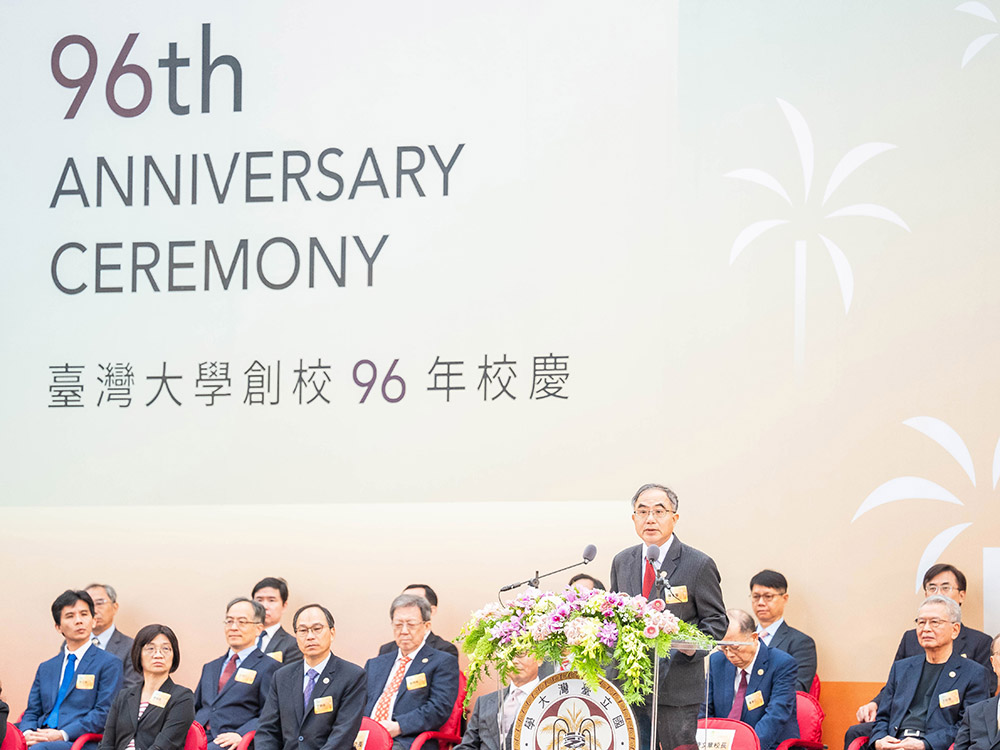
NTU celebrates its 96th Anniversary
瀏覽器版本過舊,或未開啟 javascript
請(qǐng)更新瀏覽器或啟用 javascript
Spotlights
Prof. Gérard Mourou delivers a speech at NTU.
Prof. Mourou (third from left) visits President Chung-Ming Kuan (管中閔; third from right) after the speech.
Prof. Mourou (left) and LeCosPA Director Pisin Chen (陳丕燊; right) at the NTU Chee-Chun Leung Cosmology Hall.
Prof. Gérard Mourou, winner of the 2018 Nobel Prize in Physics, was invited jointly by the Leung Center for Cosmology and Particle Astrophysics (LeCosPA) and the Center for General Education at NTU to deliver a speech on “A Lifetime’s Quest for Light” for the NTU Lectures on the Intellectual and Spiritual Pilgrimage at the NTU Chee-Chun Leung Cosmology Hall on November 9, 2019. Prof. Mourou introduced one of his major findings—chirped pulse amplification (CPA), as well as his observations and experience at the Nobel Prize Award Ceremony.
Visible laser has been widely applied in a variety of research fields since its invention in 1960. However, by the 1970s, laser development began to stagnate due to difficulties in building larger amplifiers to increase laser power density. Prof. Mourou and Prof. Donna Strickland, who was still a doctoral student then, overcome the difficulties and invented the CPA technology together.
Prof. Mourou recalled how the idea of grating occurred to him when he was sitting on an ascending ski lift in a ski resort. He wondered whether dispersing a laser beam using gratings, stretching the split laser pulses to reduce their unit power density before amplification, and then compressing the pulses to reverse the dispersion would solve the problem. This idea was later realized through precise design and experiments, successfully amplifying laser pulses and increasing laser power density to a level previously unattained. The research results were published in 1985 and set the foundation for Prof. Mourou’s winning of the 2018 Nobel Prize in Physics.
Knowing the potential of ultrashort laser pulses to perform precision ablation, Prof. Mourou collaborated with eye doctors in applying the pulses to corneal surgery and thus created the “corrective laser eye surgery.” Since 2001, this surgery has benefited nearly a million patients, an achievement particularly highlighted at the Nobel Prize Award Ceremony. Furthermore, Prof. Mourou illustrated the extensive applications of laser in the future, including facilitating the next-generation particle accelerator, removing radioactive materials from nuclear waste, generating proton beams for proton therapy, and simulating a black hole.
Besides expressing appreciation to his wife, Prof. Mourou recounted the most impressive moment for winning the Nobel Prize to be the occasion after the award ceremony, when he was ushered into an office, given an ordinary notebook with the signatures of all the previous Nobel Prize winners, and requested to sign his name on it. Adding his name to the list felt like standing shoulder to shoulder with the many great physicists in history – a tremendous honor to him.
Finally, the Nobel Prize laureate noted that students are equally capable of making groundbreaking contributions as established scientists do. For example, although the CPA technology was published by Prof. Strickland during her doctoral studies, it eventually garnered her a Nobel Prize in Physics. As one of the few female Nobel Prize laureates, Prof. Strickland is an inspiring role model for women scientists. He expressed the hope to see more women shine and establish themselves in the realm of physics and other scientific research fields.

NTU celebrates its 96th Anniversary
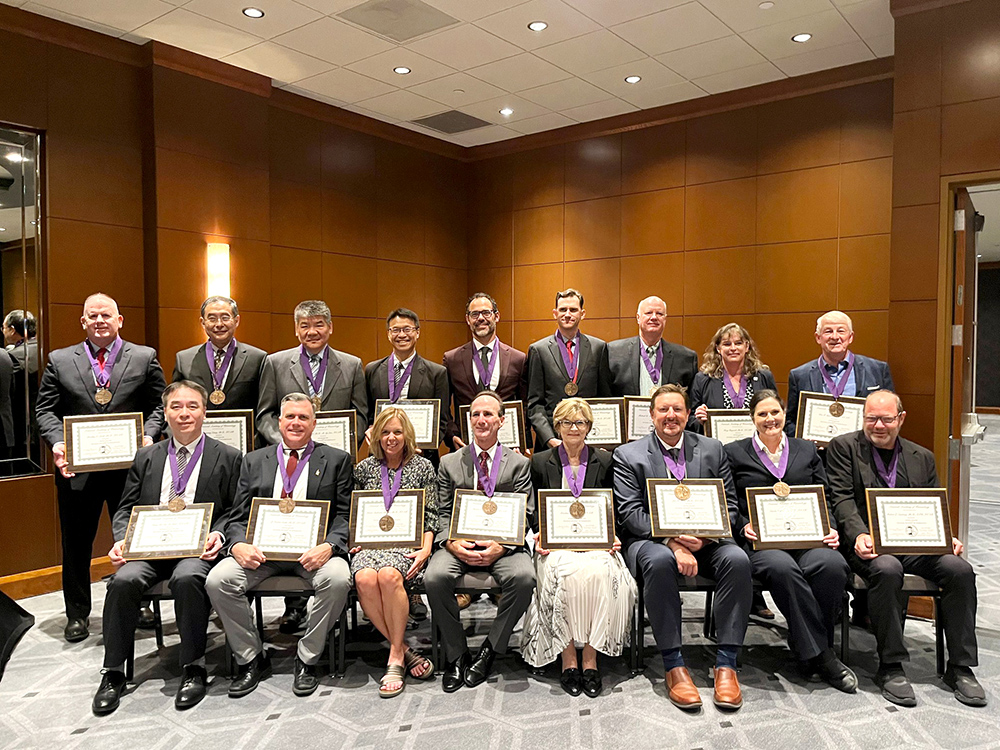
Prof. Tung-Wu Lu elected US National Academy of Kinesiology Fellow
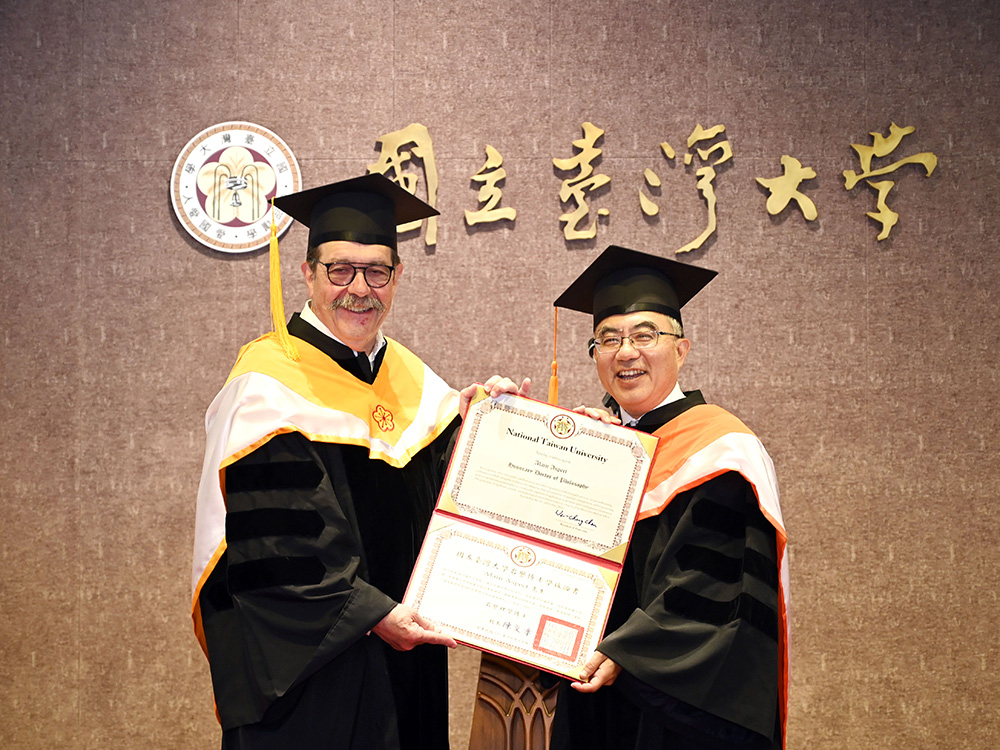
Nobel Laureate Alain Aspect awarded “NTU Honorary Doctorate” and “Raymond Soong Chair Professorship of Distinguished Research”
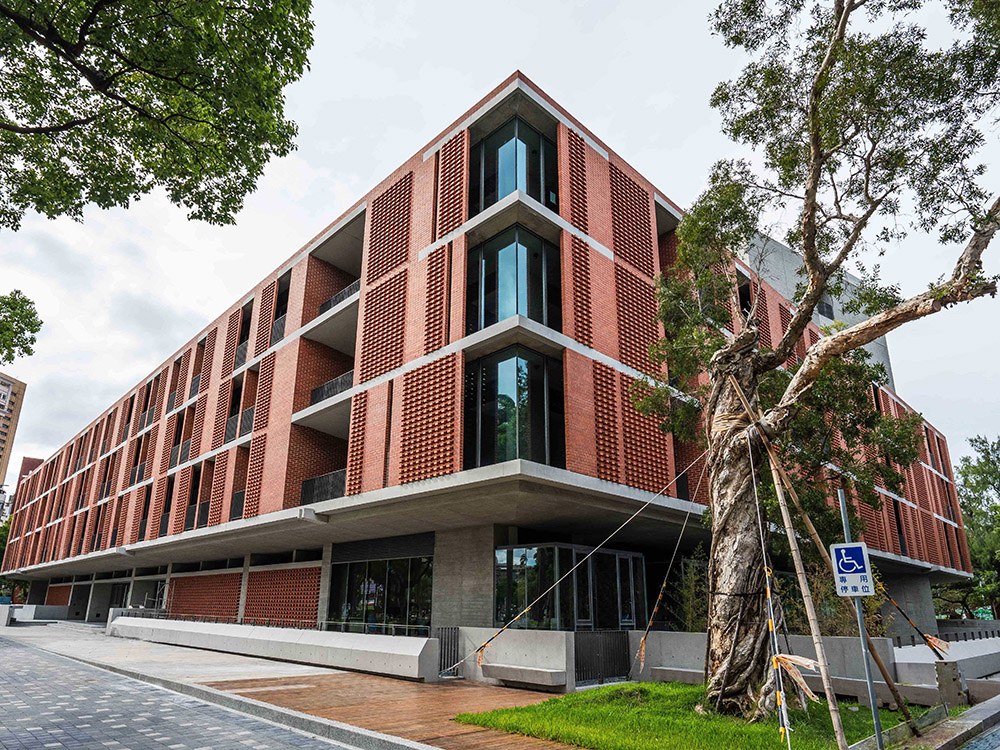
Newly constructed NTU Humanities Building wins Golden Stone Award
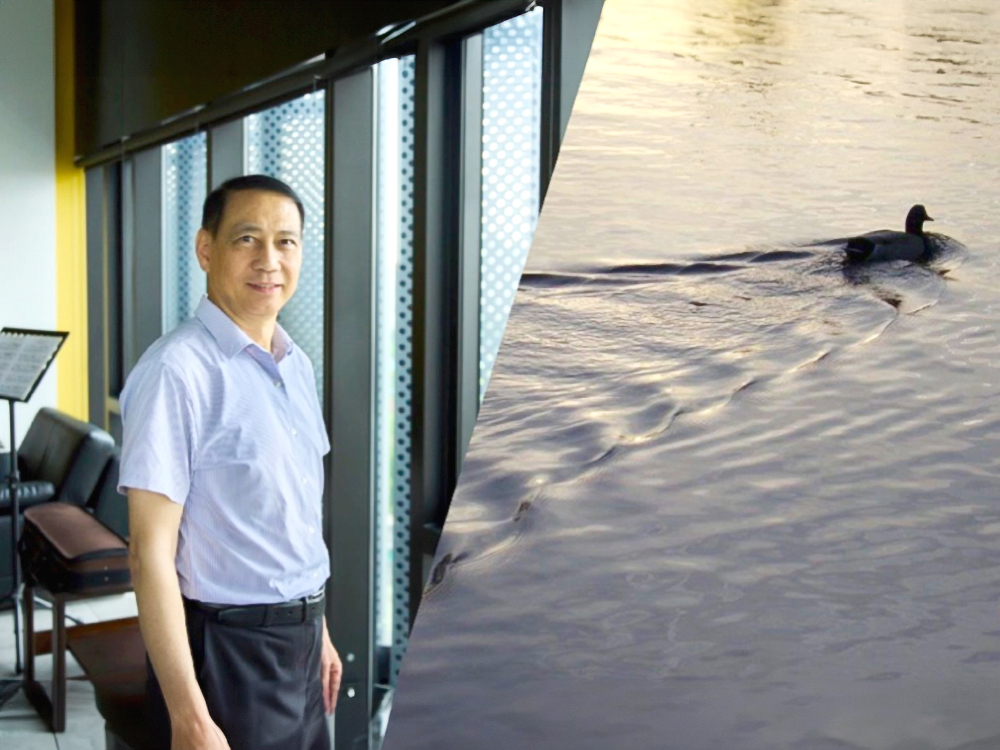
Prof. Pisin Chen Wins 2024 Chandrasekhar Prize
Current Spotlights

NTU celebrates its 96th Anniversary

Prof. Tung-Wu Lu elected US National Academy of Kinesiology Fellow

Nobel Laureate Alain Aspect awarded “NTU Honorary Doctorate” and “Raymond Soong Chair Professorship of Distinguished Research”

Newly constructed NTU Humanities Building wins Golden Stone Award

Prof. Pisin Chen Wins 2024 Chandrasekhar Prize